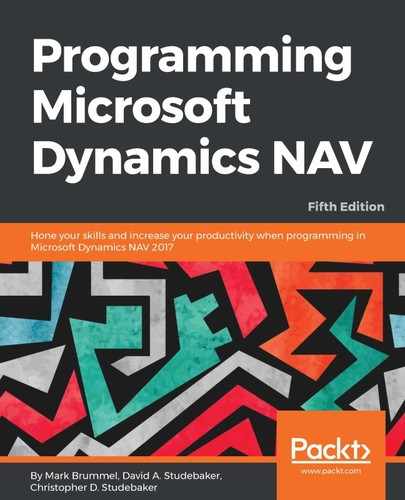First, let's review some basic NAV terminology:
- Data type: Defines the kind of data that can be held in a field, whether it be numeric (such as an integer or decimal), text, a table RecordID, time, date, Boolean, and so forth. The data type defines what constraints can be placed on the contents of a field, determines the functions in which the data element can be used (not all data types are supported by all functions), and defines what the results of certain functions will be.
- Fundamental data type: A simple, single component structure consisting of a single value at any point in time, for example, a number, a string, or a Boolean value.
- Complex data type: A structure made up of, or relating to, simple data types, for example, records, program objects such as Pages or Reports, Binary Large Objects (BLOBs), DateFormulas, external files, and indirect reference variables.
- Data element: An instance of a data type, which may be a constant or a variable.
- Constant: A data element explicitly defined in the code by a literal value. Constants are not modifiable during execution, only by a developer using C/SIDE. All the simple data types can be represented by constants. Examples are MAIN (Code or Text), 12.34 (Decimal), and +01-312-444-5555 (Text).
- Variable: A data element that can have a value assigned to it dynamically during execution. Except for special cases, a variable will be of a single, unchanging, specific data type.
